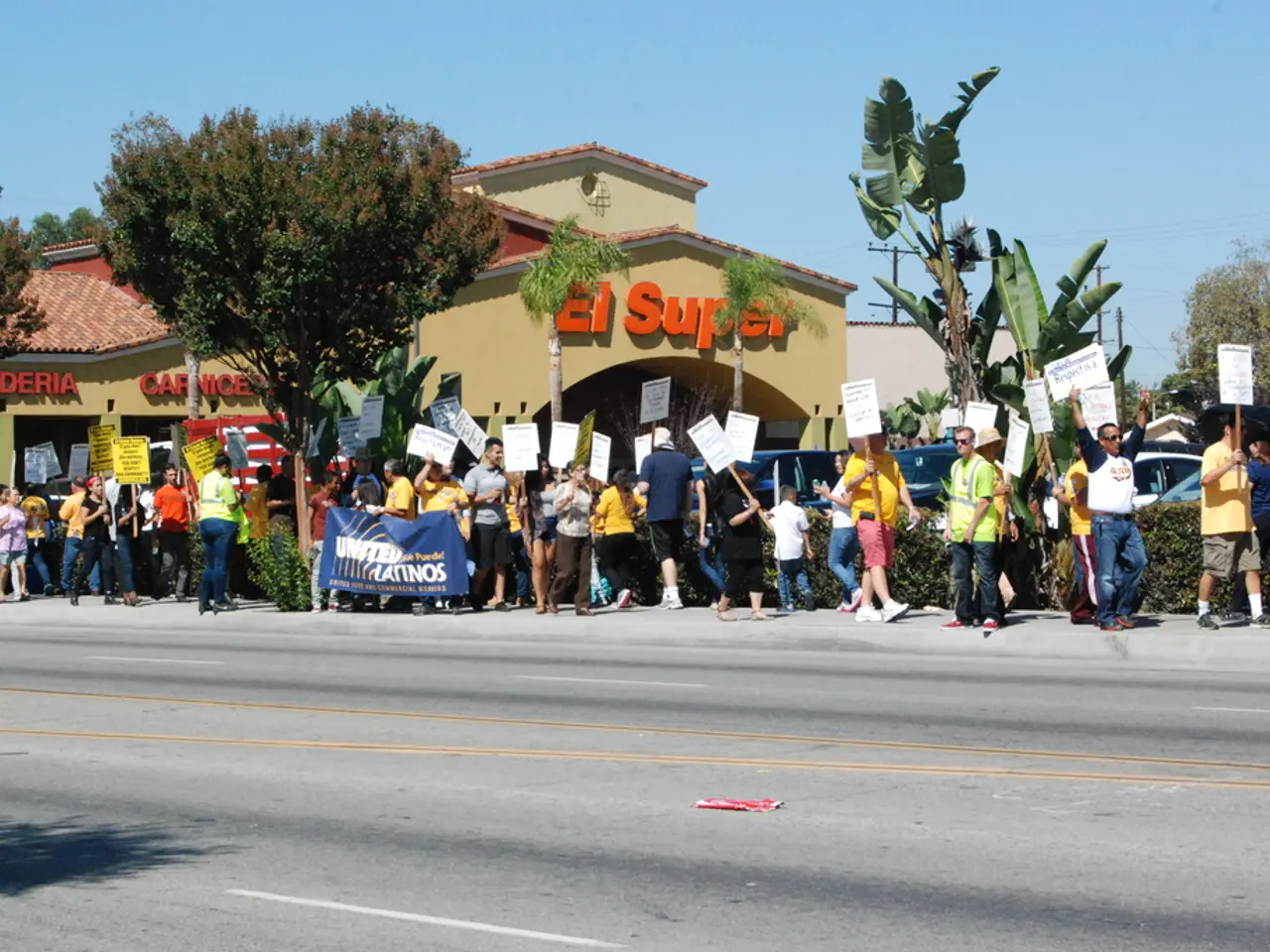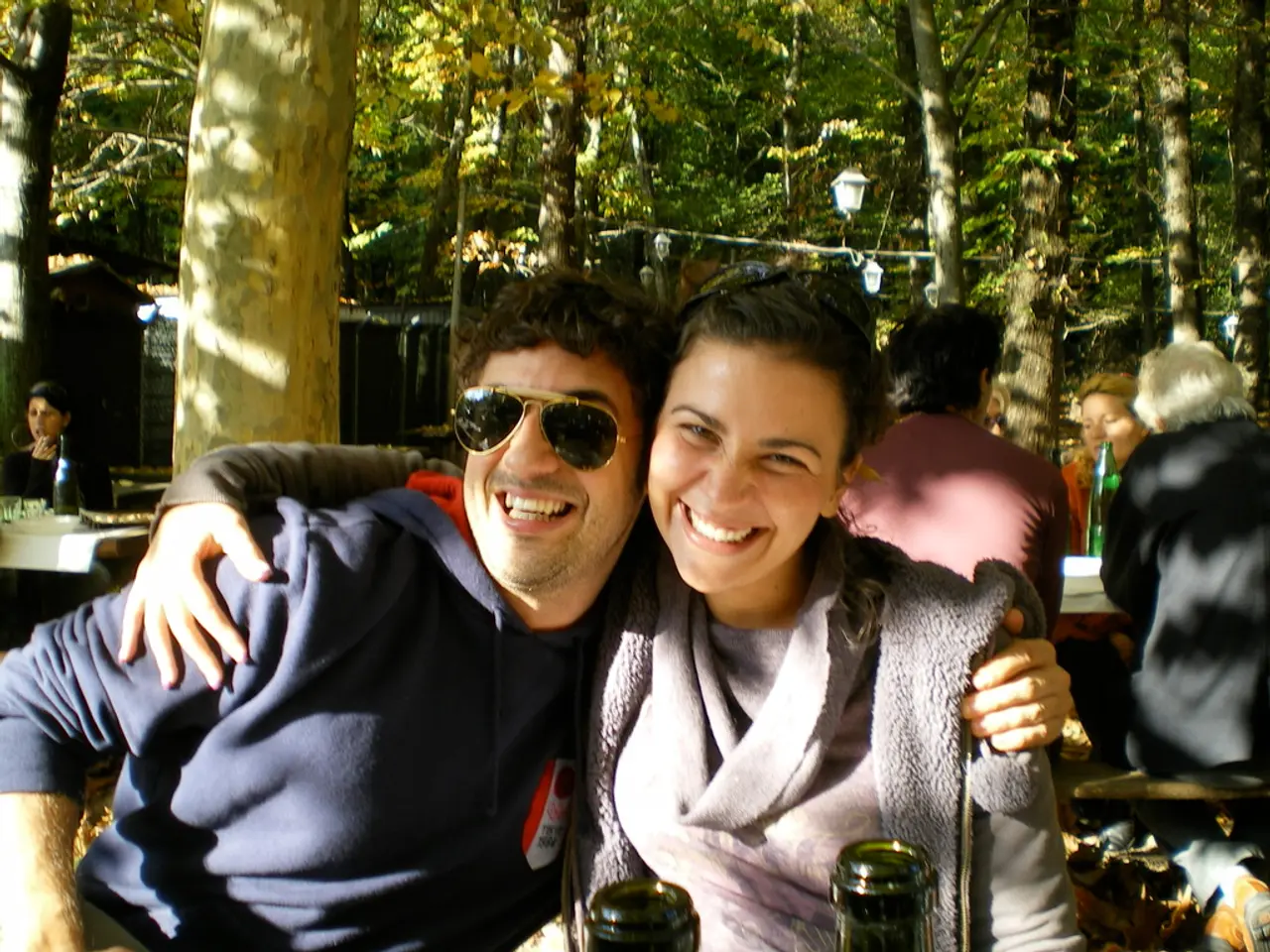Commemorative effort underway by Federal Foundation for Srebrenica massacre memorial
In the heart of Europe, political and social divisions continue to plague Bosnia and Herzegovina, particularly in the region of Republika Srpska (RS). The persistent denial of the Srebrenica genocide by leading Bosnian Serb politicians, such as Milorad Dodik, has fuelled secessionist tensions and undermined the country's national unity.
Milorad Dodik, a prominent political leader and former RS president, has consistently challenged the official recognition of Srebrenica as a genocide. In 2024 and 2025, he made strong moves against the central Bosnian government institutions, including withdrawal from Bosnia and Herzegovina's armed forces and judicial bodies, and rejecting international resolutions commemorating Srebrenica as a genocide. The RS government has rejected the UN General Assembly's 2024 resolution establishing 11 July as the International Day of Reflection and Remembrance of the Srebrenica Genocide.
Dodik's defiance culminated in a court trial in February 2025, where he was found guilty of failing to implement decisions of the international High Representative, sentenced to a year in prison, and banned from holding the RS presidency for six years. Dodik refused to attend the court and reiterated his rejection of the Bosnian state and its institutions.
Survivors of the Srebrenica massacre continue to speak out about the ongoing pain caused by denial and the lack of adequate protection during the massacre in 1995. They draw parallels between the international community's failure to prevent or respond effectively to Srebrenica and other contemporary conflicts, emphasizing the enduring trauma and the importance of remembrance.
The Srebrenica massacre, which occurred in July 1995, is widely recognized as genocide by international courts and institutions, with over 7,000 Bosniak men and boys killed and more than 20,000 civilians expelled. The massacre was part of a broader ethnic cleansing campaign by Bosnian Serb forces, led by figures such as Radovan Karadžić and Ratko Mladić. Efforts by Bosnian Serb forces to conceal the crimes have been well documented and challenged by international forensic investigations.
Meanwhile, the Federal Foundation for the Reappraisal of the SED Dictatorship, located in Berlin, Germany, is not directly related to the Srebrenica massacre. The Foundation's current exhibition, titled "Women in Divided Germany," may not be directly related to the Srebrenica massacre either. However, Dr. Anna Kaminsky, Director of the Foundation, stated that Srebrenica serves as a reminder that genocide is not a relic of the past and that remembering it means taking a stand against any form of nationalism, racism, and historical revisionism.
For more information about the Federal Foundation for Reappraisal, visit their official website at www.bundesstiftung-aufarbeitung.de or contact their Press Officer, J. Harnisch, at [email protected] or 030 / 31 98 95 225. The Foundation's data protection policy can be found at www.bundesstiftung-aufarbeitung.de/datenschutz. The Foundation also maintains a presence on Facebook at facebook.com/BundesstiftungAufarbeitung.
An in-depth look at the political and social developments related to Srebrenica was provided by the Federal Foundation for Reappraisal in 2021 under the title "Hate or Reconciliation." The event highlighted trends that are still not overcome today, such as the continued denial of the genocide and growing tensions in the region.
The war ended with the Dayton Agreement on November 21, 1995, recognizing Bosnia-Herzegovina as a sovereign state with Sarajevo as its capital. NATO responded to the Srebrenica massacre with air strikes on Serbian positions in August 1995. The remains of the victims were buried in mass graves and later moved to new graves to conceal the massacre.
As we remember the victims of the Srebrenica massacre, it is crucial to stand against any form of denial, revisionism, and nationalism. The Federal Foundation for the Reappraisal of the SED Dictatorship reminds us that remembering such atrocities means taking a stand for truth, justice, and reconciliation.
- The ongoing political and social divisions in Bosnia and Herzegovina, as seen in the region of Republika Srpska, are often influenced by the persisting denial of the Srebrenica genocide by politicians like Milorad Dodik, which fuels secessionist tensions and undermines national unity.
- Crime and justice, as well as general news, are significantly intertwined with war and conflicts in Bosnia and Herzegovina, as demonstrated by the court trial of Milorad Dodik in 2025, where he was found guilty of failing to implement decisions of the international High Representative, sentenced to a year in prison, and banned from holding the RS presidency for six years.







